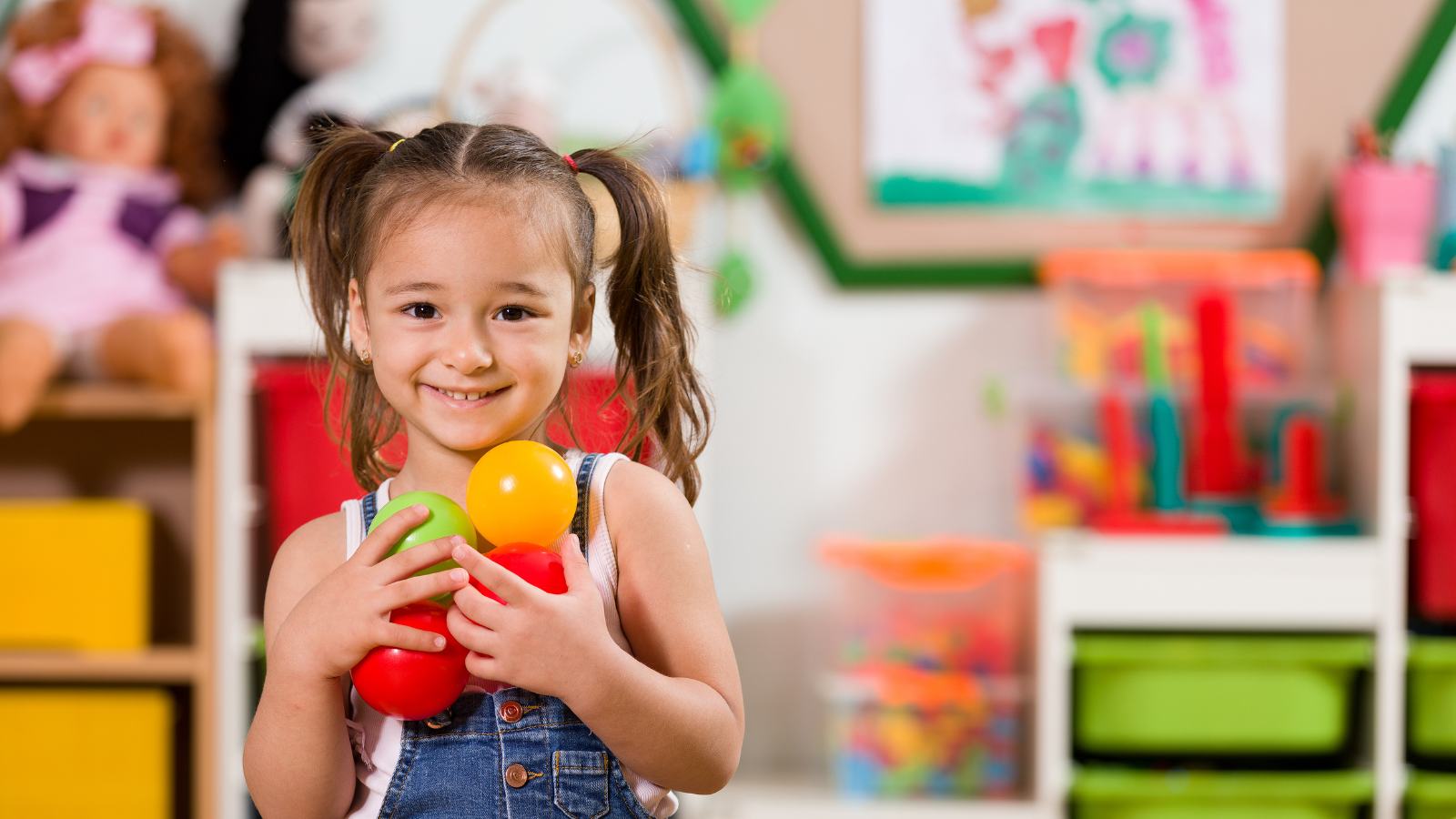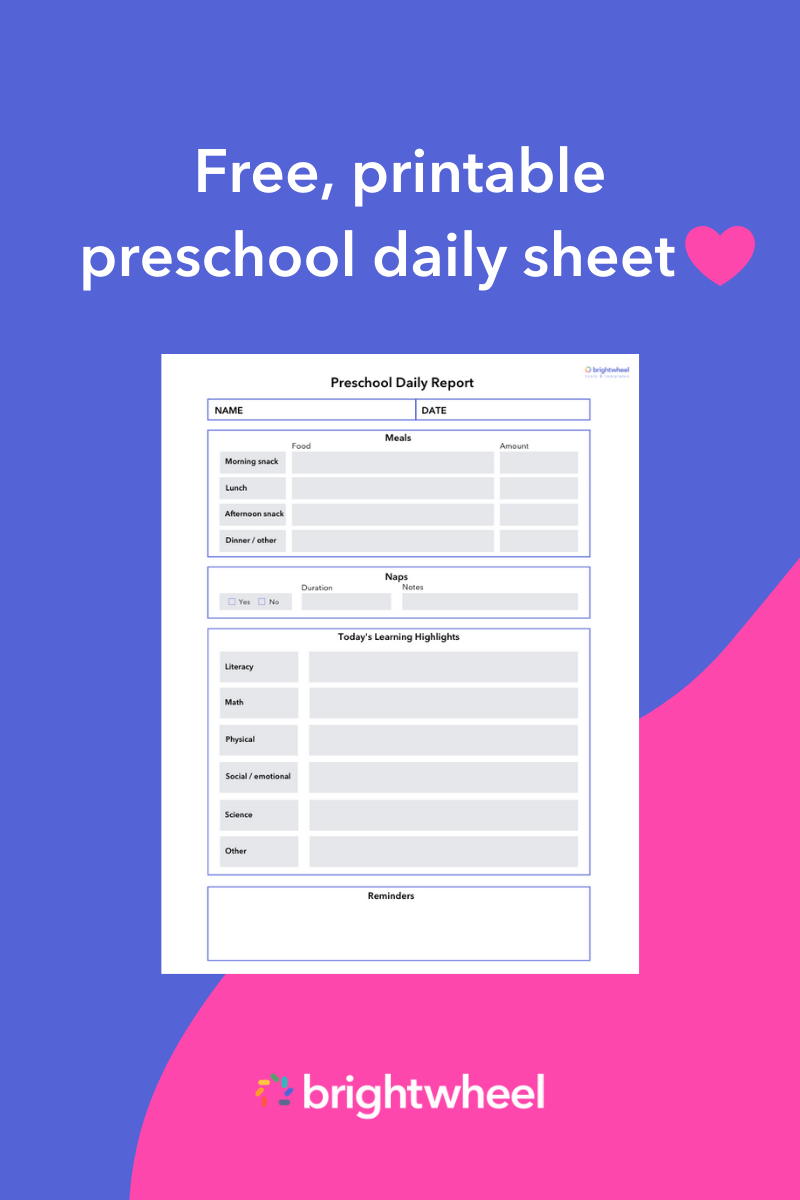
For a child to be successful, parents and teachers need to work together to support their learning. A preschool progress report is a valuable tool for educators to track each child’s development in key areas and keep families informed and engaged in their child’s learning outcomes.
Benefits of preschool progress reports
- Documents the child's progress in key developmental areas. A thorough progress report will track a child’s growth and development in social-emotional, language, cognitive and physical skills. The details gathered can be used to identify any learning and behavior trends, as well as any delays in developmental milestones.
- Allows families to engage with their child's learning. Progress reports guide parents in creating holistic home learning environments for their children. For example, if a child is struggling with language skills, families can supplement with additional language-focused activities at home.
- Encourages collaboration between educators and families. Preschool progress reports provide a clear picture of each child’s learning, ensuring both teachers and families are aware of the child’s progress and any steps needed to support their success.
Which developmental areas should you track?
A preschool report card should cover a child's progress in the main developmental areas of language and literacy, physical skills, social-emotional development, and cognitive skills. Monitoring these skills will help support children's development into well-rounded individuals and successful learners.
Brightwheel's progress report feature makes it easy to track student progress. With customizable portfolio templates and easy sharing with families, brightwheel streamlines your milestone tracking and enhances learning outcomes at your program.
Language and literacy
The skills in this section include reading, communicating with others, and writing.
For language and literacy skills, focus on:
- Growing their interest in books and reading. Possible activities include story time, singing the alphabet song, and learning to recognize letters.
- Encouraging their ability to ask questions verbally and nonverbally.
- Improving their verbal and nonverbal communication.
Physical
Physical progress is linked to other areas of early development, such as sensory development, cognitive thinking, and social-emotional development.
For a physical progress evaluation, focus on tracking:
- Gross and fine motor skills. Pay attention to their ability to throw or kick a ball, hold a crayon, skip, and bounce.
- Independence. This includes how they zip their coat, tie their shoelace, close their buttons, and swing without help.
- Hand and eye coordination. Track their ability to string beads, connect dotted activities, and play with jigsaw puzzles.
Social-emotional
Social-emotional skills are essential to a child’s ability to establish positive relationships with others.
Skills include:
-
- Ability to recognize, regulate and express their emotions
- Ability to cooperate and problem solve with their peers
- Ability to follow instructions and class routines
Cognitive
Cognition refers to the child's mental process of comprehending issues and gaining knowledge. Cognitive processes include problem-solving, memory, perceptual reasoning, and verbal comprehension.
Focus on:
- Problem-solving skills
- Improved story narrating skills
- Recognizing and naming colors
Preschool progress report examples
Your report’s design will depend on what you're reporting, how many items are on your checklist, and how often you report. Here are a few templates to consider:
Daily preschool progress report
Our preschool daily report template tracks daily activities like meals and naptime, as well as each day's learning highlights in key skill areas.
Quarterly progress report
A quarterly preschool progress report gives children ample time to learn new things and develop skills. This template tracks and assesses skills on a quarterly basis.
Skills progress report
This template records progress on specific skills such as communication, social-emotional and motor skills.
FAQs on preschool progress reports
What should a preschool progress report include?
A preschool progress report card should include comments on all aspects of a child's development, including:
- Social-emotional skills
- Physical skills
- Cognitive skills
- Language and literacy skills
What should I include in a preschool assessment report?
Include observations on a child's accomplishments and areas of improvement. Note any unique behavior.
How do you write a report for a preschool student?
Include developmental achievements and any specific challenges the child has and discuss the progress they've been making. End by stating any goals and next steps and provide families with any resources or suggestions to support their child.
How do you end preschool assessment reports?
A preschool assessment report should end on a positive note listing any goals or follow up actions.
How do I gather information for a preschool progress report?
- Be observant. Watching how children interact with other children, solve their problems, or play can help you evaluate their motor skills, problem-solving abilities, and social-emotional skills.
- Be present and listen. When you're around children, you're a part of their world. Pay attention and listen to how they reason.
- Understand the curriculum you're using. Understanding your curriculum ensures you're clear on your expectations of the children, making it easier to support and evaluate them.
How often should I issue a preschool report card?
Children are rapidly growing and reaching new milestones in their preschool years, so a regular reporting cadence will show a child's clear progress from one point to another. While the exact frequency will vary depending on your program, it is a good idea to schedule your formal preschool report cards quarterly or semi-annually.
Final thoughts
Preschool progress reports help ensure children get the support they need in early childhood. They can focus on a short-term goal like improving a challenging behavior, or a long-term goal like improving their reading and writing skills. As an educator, you can choose the best format and reporting cadence that fits the needs of your children as you guide them to the next stage of their development.
Brightwheel is the complete solution for early education providers, enabling you to streamline your center’s operations and build a stand-out reputation. Brightwheel connects the most critical aspects of running your center—including sign in and out, parent communications, tuition billing, and licensing and compliance—in one easy-to-use tool, along with providing best-in-class customer support and coaching. Brightwheel is trusted by thousands of early education centers and millions of parents. Learn more at mybrightwheel.com.

